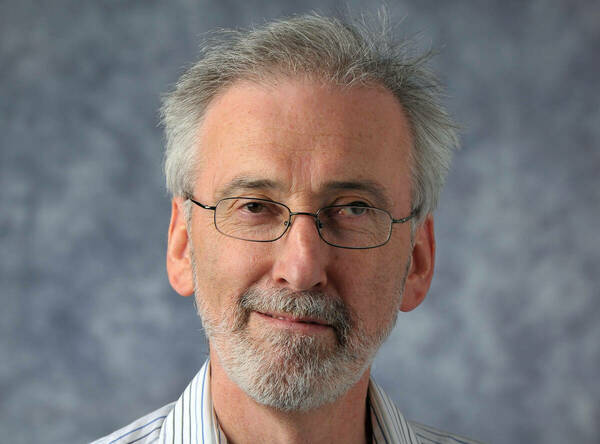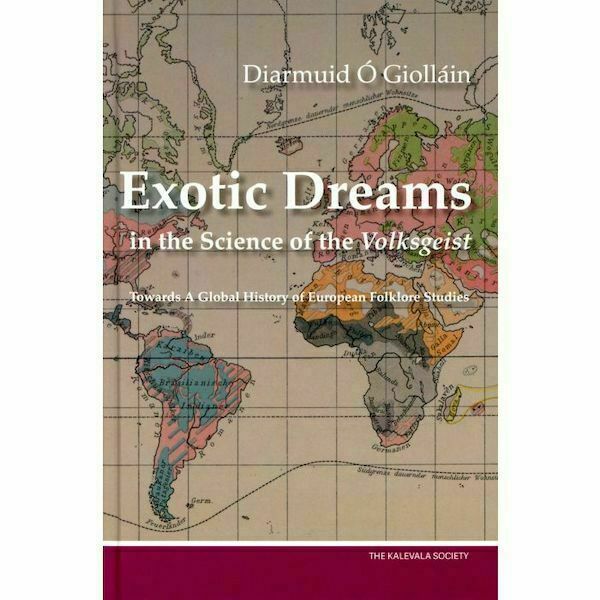
Diarmuid Ó Giolláin has won the 2023 Chicago Folklore Prize for his book that broadens the understanding of the origins of European folklore studies.
The professor of Irish language and literature learned late last year that his book Exotic Dreams in the Science of the Volksgeist: Towards a Global History of European Folklore Studies had won the oldest international prize for excellence in folklore scholarship. The prize is offered jointly by the American Folklore Society and the University of Chicago.

“I think when you write a book you want it to be read, first and foremost,” Ó Giolláin said. “And it’s a plus if your peers think it's of some value.”
Judges for the prize — which is awarded to the best work of scholarship in the field for the year — touted the book’s merit, describing it as sweeping, expansive, ambitious, and insightful.
“This unprecedented work reveals how European research traditions were historically, culturally, and, above all, significantly influenced by European encounters with other peoples, many from a distance,” they wrote. “Ó Giolláin’s ambitious work transforms the reader’s view of the history they thought they knew.”
Ó Giolláin describes folklore studies as a field that lives between anthropology and cultural history. It examines the significant cultural impact of oral history and literatures — like stories, songs, and other practices — and how they’re linked to political, religious, and ethnic identity.
Ó Giolláin, who is also a fellow with the Keough-Naughton Institute for Irish Studies, shows how the research field of folklore studies not only emerged from Enlightenment and Romantic ideas in 18th- and 19th-century Europe, but that it also had an important colonial dimension.
In his research, he examines how the growth of empires and contact with peoples of different cultures carried significant consequences — namely, well-documented violence. It also prompted a scientific investigation into peoples and their languages that indirectly helped to develop the notion, known as cultural relativism, that the validity of knowledge, truth, or morality depends on cultural or historical context.
In the 18th century, for example, German scientists were hired by Russians to better understand the indigenous Siberian cultures their empire enveloped. At the same time, there was an interest in the oral traditions of Native Americans. And, concurrently in India, British philologist Sir William Jones noticed a similarity between Sanskrit and European languages, which spurred the development of comparative Indo-European linguistics in the 19th century.

In the 19th and early 20th centuries, interest in vernacular culture — including marginalized languages and oral traditions — was a major factor in mobilizing movements within Europe for national or cultural independence.
These all played a role in the elaboration of ideas from which folklore studies emerged.
Ó Giolláin, a concurrent professor in the Department of Anthropology, said appreciation of cultural diversity could be one takeaway from the book. He noted the United Nations Educational, Scientific and Cultural Organization (UNESCO) has formally recognized the importance of safeguarding traditional cultural expressions.
“If you're interested in folklore or in anthropology, diversity is something that you're drawn to,” said Ó Giolláin, whose first book Locating Irish Folklore: Tradition, Modernity, Identity won the Katharine Briggs Folklore Prize in 2000. “It's something we need to continue to be focused on, whether it’s cultural, linguistic or biological diversity — they’re all crucially important.”
A symposium on the book’s themes — including intersections between language, colonialism, folklore, and ethnography — took place in December at Trinity College Dublin. Ciaran O’Neill, Ussher Associate Professor in Nineteenth-Century History at Trinity College, and Barry McCrea, Keough Family Professor of Irish Studies at Notre Dame, organized the event that included experts from the University of Amsterdam, University College Cork, and the University of Galway.
Ó Giolláin learned a great deal writing the book and plans to further research the topic.
“With this book, I think ideas were going around in my head for years before it began to take shape. I was writing it long before I knew how it would end up,” he said. “It’s the pleasure of the journey, as much as reaching the destination.”
Originally published by at al.nd.edu on April 04, 2024.